|
Photo Source: Eduardo Muñoz Alvarez/Getty Over the weekend, I got a response to my last blog post that was upsetting and triggering on multiple levels. It took me a long time to build up the courage to start blogging, and when I did I knew that it would be inevitable that I would receive comments that would piss me off. However, this comment wasn't the type that I was expecting, mainly because I don't believe that the comment came from a place of malicious intent. It came from a place of pure, unadulterated ignorance. But that's the thing about racism. It's so deeply ingrained in our culture that even the most well-meaning of people can perpetuate it without realizing. The comment, in the form of a tweet, went something like this:
"You're an endangered species. Blacks have so much power if only they'd get up off their pity-pot and Go Vegan #empathy #god" I was quite upset to receive this comment, for so many reasons. For starters, to be referred to as an "endangered species" in a way that was meant to be a compliment was terribly shortsighted in a time where Black people of all ages are disproportionately victimized by police. I know that this woman meant that it was rare to see someone like me, Black, educated, and vegan, writing about my triumph over my own personal health struggles, but on this, she was also terribly wrong. It might be rare for anyone living under a rock, but anyone paying attention would realize that Black people like me are everywhere. To be called an "endangered species" was patronizing and dehumanizing all at once, even if the realities of police violence, poverty, poor healthcare and overall institutionalized racism lend a kernel of truth to the statement. If we are "endangered", it is due to a system that consistently devalues human life, especially when that human is Black, or Native, or an immigrant, or Muslim, or disabled. The saddest part about this statement is that it fails to realize that in spite of all our socioeconomic and religious differences, we are of the same species. But it was the pity-pot portion of the comment that really got under my skin. It was a complete minimization of the very real struggles that Black people have faced and continue to face every single day. It was an infantile version of the bootstrap theory, basically insinuating that Black people could achieve equality if only we'd pull ourselves up by our bootstraps and get to work. It reinforces the notion that Black people are inherently lazy, that we want handouts when really all we want is to be treated as equals and left the hell alone. Her entire comment was couched in stereotypes. She meant that I was "different" from "those other" Black people, like the ones she probably only ever comes across on television. Her idea of our "power" is probably influenced by the ever-circulating idea that if Barack Obama can do it, then so can the rest of us. What gets me though, is the "#empathy" at the end of her statement, because it might be the most ironic part of all. How amazing it is that people can find enough empathy to relate to the pain and suffering of all other creatures on this planet while blatantly refusing to recognize the pain and suffering of their fellow humans. I can hardly say I'm surprised though, as Black pain is constantly being minimized and ignored. I was ready. I was getting all my research together to write a kick-ass blog post about the pervasive persistence of systemic racism, to rail about the limitations of empathy among certain fellow vegans, etc. But then I was reminded of this gem of a quote from the wise Toni Morrison: “The function, the very serious function of racism is distraction. It keeps you from doing your work. It keeps you explaining, over and over again, your reason for being. Somebody says you have no language and you spend twenty years proving that you do. Somebody says your head isn’t shaped properly so you have scientists working on the fact that it is. Somebody says you have no art, so you dredge that up. Somebody says you have no kingdoms, so you dredge that up. None of this is necessary. There will always be one more thing.” I did not create The Black Vegan Diaries to teach people about racism. I did not start this blog to go toe-to-toe with people who refuse to acknowledge the suffering that stares them right in their face. The internet is awash in information for anyone who actually cares enough to understand. People aren't marching in the streets, working day in and day out in their communities, lobbying their elected officials, and doing all kinds of anti-racism work just because they're looking for pity. I'm doing this because I have first-hand knowledge of what it's like to be Black while trying to be and do so many other things in this life. I know what it's like to be on the receiving end of racism, implicit and explicit alike. I know my struggles and I know the struggles of my people, especially when it comes to our health and well-being. I know that our pain is real and my goal is to address it, regardless of whether or not people think that our grievances are valid. There are a whole lot of problems that I truly believe can be improved by going vegan, but systemic racism is not one of them.
1 Comment
I remember my very first McDonald's cheeseburger. Vividly. I was around seven or eight years old, in the back of my babysitter's car. I have no clue where we were off to but I do remember driving through the drive through and picking up a happy meal. Up until this point, I didn't care much for food. To say I was a picky eater is an understatement. My mother constantly struggled to get me to eat. I was the kid who was always forced to sit at the table until I ate my dinner, and whether by tears or by making my meal inedible by dousing it in too much ketchup, I'd eventually find a way to free myself without ever really touching my food. So when I bit into that cheesy, salty, fatty flavor bomb of a cheeseburger, I felt something that I had never felt before while eating: pleasure.
I would spend the next decade and a half constantly seeking that same feeling, and I would always find it. Bacon, egg and cheese sandwiches, gigantic, greasy slices of pizza, french fries covered in mysterious cheese-like substances, sweet & spicy general tso's chicken - I spent my adolescent and young adult years indulging and overindulging in all the junk food that New York City had to offer. By my sophomore year of college, I'd eaten myself up to 242 pounds, and despite all the pleasure I was deriving from food, I was more depressed and anxious than ever. It would take a couple more years for me to realize that I had quite a destructive relationship with food. I constantly sought pleasure from food because it was the only way I knew to soothe myself. Since that fateful day during my childhood, food had been the answer to the worst of my emotions. Rather than dealing with them directly, I would stuff them further and further down until I no longer had to contend with them. I would binge on food until I was stuffed and uncomfortable, and though it was a fleeting moment of pleasure that would subside all too soon, I was glad to feel even the slightest bit better. I was a junkie, and food was my drug. A week after graduating from college, I ended up in the hospital with what would turn out to be a panic attack. I had spent years pushing my feelings to the side and covering them up with food so that I could cope long enough to get shit done. But I eventually learned that it's impossible to avoid these feelings forever. I realized that I needed to focus on my health and well-being, and I eventually embarked on a journey of health and wellness. Within a few years, I'd lost 60 pounds, I was powerlifting to deal with my mental health, I was fitter than ever, and I'd even become a certified personal trainer. Everything was going great, until a series of triggers plunged me into a deep depression. Of course, my instinctual response was to seek comfort in food, and the more indulgent the better. My weight was steadily creeping back up, old ailments were starting to rear their nasty head, and new ones were beginning to appear. I was terribly unhappy, caught in a web of despair that seemed to have no end. My unhealthy relationship with food was a symptom of problems that were much bigger than I wanted to admit. At the urging of my husband, I sought therapy. I don't know if I would have adopted a vegan diet were it not for therapy. Months of working through my problems allowed me to settle into a more rational head space. Rather than running from my problems, I was tackling them head on. One of these problems was my health. I didn't feel healthy and I had to take a deep, honest look at myself. Despite all my book knowledge, despite all my knowledge of health, nutrition, and fitness, I wasn't taking care of myself. Because honestly, I just didn't give a fuck. In an attempt to clean up my diet and improve my health, I did tons of research that eventually led me to a vegan diet. I'd tried it briefly many years before, but I did not have the nutritional or culinary knowledge that I do now, so I fell off that wagon all too quickly. This time, however, there was much conviction behind my decision to adopt a plant-based diet. I was tired of feeling like shit, and I was tired of treating myself like shit. I did not expect, however, that going vegan would drastically change my relationship with food. I no longer seek pleasure from food because honestly, I don't feel the desire to. Nourishing myself with nutrient-rich foods has done wonders for my mental health. I now know what it's like to experience sadness and anger without being entirely consumed by it. I couldn't believe that it was possible until I read the same testimony from others. My depression, which has been with me since childhood, has totally disappeared. Further research into the relationship between mental health and nutrition has confirmed for me that yes, plant-based diets can greatly improve depression. I now realize that food is not only fuel, it is medicine. Now that I no longer eat my feelings, I am able to look at my food in a more objective and rational way. Most of the time, I am eating to nourish myself. I'm now in tune with what my body needs to thrive, not what my mind needs to feel better for a brief moment in time. I eat to fuel my newfound love of running, I eat for boundless amounts of energy, I eat to look good, feel good, and most importantly, I eat to thrive. With all this as a foundation, the occasional plant-based indulgence becomes all the more decadent, and best of all, I no longer feel guilty about what I'm putting into my mouth. Even greater than all of this is that I've also been able to take a good honest look at myself and realize that the food I eat has an effect on so much more than just me. From the sentient beings whose lives are lost, to factory workers toiling in unsafe conditions, to poor communities that are being sickened by living near unhygienic factory farms, there are countless lives that are affected by the food I put into my mouth. The notion that I can contribute to suffering by helping to create a market for "food" that I don't actually need no longer sits well with me. Not to mention the environmental impacts of carbon & methane emissions, deforestation and overfishing. I am not at all deprived, I eat lots of delicious food, and I'm a bigger foodie than ever. I now take pleasure in knowing that my actions match up with my values and convictions. I no longer eat out of emptiness, but from a place of love. Love for myself, love for animals, love for my people, and love for my environment. Veganism has helped instill in me a sense of responsibility for the Earth that I live on and all the beings that I share it with. And that is the most pleasurable thing of all. It happens almost cyclically. Every few months or so there's another tragic story about a poor young soul who loses their life due to the ignorance of their parents. These parents are almost always vegan, and their lifestyles are almost always, even by vegan standards, quite extreme. The headlines are alarming and incendiary, and the implication is always that veganism is to blame for the child's death. The comment sections explode with derogatory remarks about "crazy vegans" who starve their children to death. One particularly memorable and contradictory comment even likened vegans to climate change deniers. Point is, the sensitive nature of these stories and the tragedy of a young life lost always gets people riled up, and unfortunately, the real problem gets lost in all the clamor.
Understand, the term "vegan" tells you much more about what a person doesn't eat than what they do eat. Vegans do not eat meat or any animal byproducts, including eggs and dairy. While many people assume that all vegans subsist on twigs, leaves and berries (-_-), there are junk food vegans who eat nothing but unhealthy packaged and processed foods. Likewise, there are those whose meat-based diets are chock full of protective fruits and vegetables while others subsist on nothing but fried, greasy or sugary food. That being said, there are vegans, vegetarians, and meat-eaters alike who are uneducated about nutrition, especially the particular nutritional needs of a young, growing child. This is not something that is exclusive to vegans, the increasing incidences of diet-related diseases in children is proof of that. So, is a vegan diet healthy for children? Many people feel that vegan diets are unhealthy because of supposed missing nutrients, but this notion is also rooted in nutritional ignorance. First, it presupposes that children and adults alike are getting all the vitamins and nutrients that they need from their meat-based diets (they aren't). Second, there is nothing that can be obtained from meat that cannot be obtained in adequate amounts from a plant-based food or, in the special case of vitamin B12, supplementation. Indeed, the American Dietetic Association came out with this position back in 2009: "It is the position of the American Dietetic Association that appropriately planned vegetarian diets, including total vegetarian or vegan diets, are healthful, nutritionally adequate, and may provide health benefits in the prevention and treatment of certain diseases. Well-planned vegetarian diets are appropriate for individuals during all stages of the life cycle, including pregnancy, lactation, infancy, childhood, and adolescence, and for athletes. " (emphasis mine) The key term here is "appropriately planned", because as I mentioned previously, a vegan diet that is not rich in nutrient-dense foods such as fruits, vegetables, seeds and legumes can be harmful. However, the same also holds true for a meat-based diet that doesn't include these health-promoting foods. The common thread here is nutritional ignorance. Of course, nutrition is not a standard subject taught in American schools, and the media is awash in ever-changing misinformation regarding what is truly healthy and what isn't, so it's no surprise that Americans are confused about how to properly eat. But to point to veganism, or a plant-based diet in particular, as somehow unhealthy or dangerous, is ludicrous. This demonization of veganism also stems from a sort of Western-centric ignorance that discounts the dietary knowledge that other cultures have cultivated over many centuries. Countless societies have sustained themselves (raising perfectly healthy children, no less) on vegan, vegetarian, or near meat-free diets. A vegan or vegetarian who has grown up in a meat-heavy dietary culture may become confused when it comes to feeding their children. Fear, paranoia, and misinformation can all contribute to a lifestyle that is actually devoid of nutrition, and while grown adults may be able to survive in such a state, growing children cannot. For example, in spite of the low-fat fads that are common in the dietary world, it is imperative that babies and infants receive adequate fat from their diets. During these critical years, brain development is rapid, so feeding the brain the nutrients that it needs is crucial. Educating yourself and consulting the appropriate authorities on infant development is absolutely important, even if you eat meat. It is very easy to point to vegan diets as extreme, but this is frankly an ignorant and lazy thought process. Eliminating recess and cutting back on gym classes is extreme. Children being forced to subsist on junk food because they live in food deserts is extreme. Denying children their lunch because a parent can't afford to pay is extreme and should damn well be considered criminal. Allowing corporate interests to dictate the food being sold and served in schools is extreme. But wanting to feed a child the most nourishing foods that this Earth has to offer is anything but extreme. It just has to be done right. My silence is how I've protected myself. But in a twist of cruel irony, it's also how I've hurt myself, over and over again. In my household, where religious values were quite prevalent, my silence was a foregone conclusion. I was of course, a young child, and children were to be seen and not heard. So while on the inside I suffocated under a cacophony of screams, I learned to deftly silence myself, even in the face of injustices directed towards me. The lesson that was supposedly being taught was that silence is a form of respect, but what I learned was that my voice was unimportant.
As a girl, like many girls before me, I learned how to suffer in silence. I learned that not talking back would ensure that punishments would subside quickly. I learned that the boat would stay steady and feathers would remain unruffled by simply keeping my mouth shut. This unfortunate lesson was ingrained in me and I started to operate on autopilot; before I could be silenced, I would simply silence myself. This was only the beginning. Through keen observation and experience, I eventually learned that a man's voice is superior, and that his word is final. Children don't talk back to adults and no one talks back to a man. Within a few years, I would learn that as a Black person, silence could be a tool for survival. Life would be easier if I actively avoided being the "loud, Black girl". Life would be easier if I spoke softly to those in positions of authority. Life might be preserved if that person in authority happens to be a police officer. Eventually I would become a Black woman, and silence would be my life vest. My tendency to self-silence became second nature. When I finally decided to free myself of the religious ideologies that I grew up with, I knew that announcing such a thing to my family would make certain people upset. So even if I didn't agree, I would still participate, tight-lipped, in the family prayer before our Thanksgiving feast. For many years, I grappled with my sexual identity. Despite my attraction to both men and women, I could avoid judgment and harassment by simply keeping the latter to myself. So I did. Don't get me wrong. In the face of injustice, particularly those being faced by other people, I would certainly speak up. Somehow, while learning to silence myself, I also learned how to speak for those who needed to be spoken for. I learned the importance of being there for others, but I never learned how to be there for myself. During my college years, I would become more vocal about social injustice, a deep passion of mine, but quickly I wilted under how personal the backlash would become. My constitution would only allow me to bear the weight of it all for a short time. It was no longer about "my people"; it was now about me, and the only way I knew to defend myself was to avoid confrontation altogether. And eventually, I choked on this silence. What they say is true, bottle it up and eventually it'll make its way out, one way or another. It should be of no surprise to anyone that throughout my life I've struggled with depression and anxiety, and at the very core of my mental health struggle is all the silences I've built up, one on top of the other. I would only find peace and freedom by living in my truth - my complete and honest truth. I've been working on getting there, on getting to the place where I'm so free, so comfortable in my own skin that I can wave both middle fingers in the face of others' opinions. I've shut many closet doors behind me, I've have numerous uncomfortable conversations, and day by day, I still grow. However, old habits die hard. When I decided to go vegan, I didn't hide it. I'm no longer so wrapped up in what other people think that I feel forced to hide important aspects of myself, but I've been nervous. I've been concerned about not being that vegan. You know, the stereotype. But I've come to realize that my constant fear of being perceived as a stereotype has been another way that I've silenced myself, and it has only been to my detriment. As with anything else, I'm not here to tell anyone what to do, how to live, or who to be. But I can't continue to allow people to stop me from living in my truth. It is from this conviction that this blog was born. From a desire to stop silencing myself, to let my voice ring through free and clear, without fear of whose feathers I may ruffle. I am who I am, and all these various parts of me - my race, gender, spirituality, sexuality, diet and health - all interact in a beautiful, synchronous way to create the complicated being that I am. And I have no reason to apologize for it. This blog isn't just about being Black, or just about being vegan, it's about me, finally breaking the silence. |
AuthorMy name is Nivea, but you can call me Niv. I'm an independent Plant-Based Nutrition & Fitness Coach hailing from the Bronx, NY. Archives
August 2021
Categories
All
|

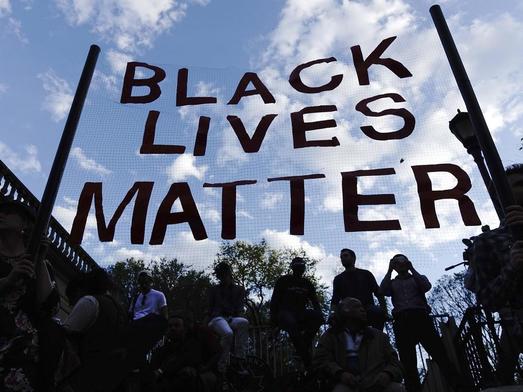
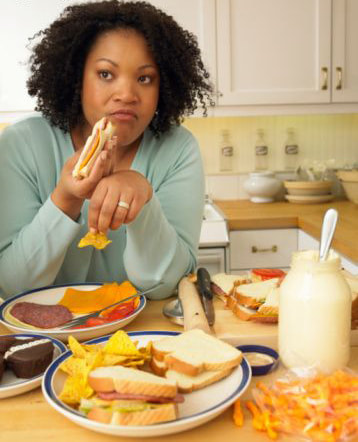
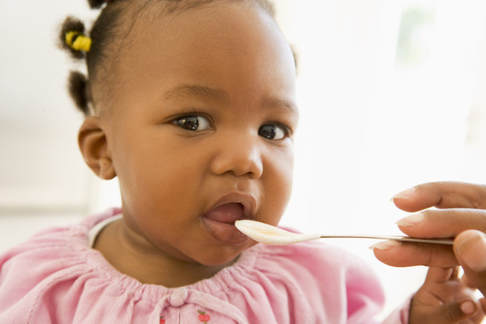
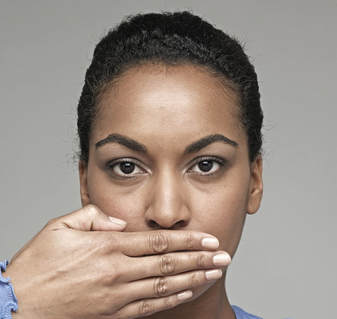
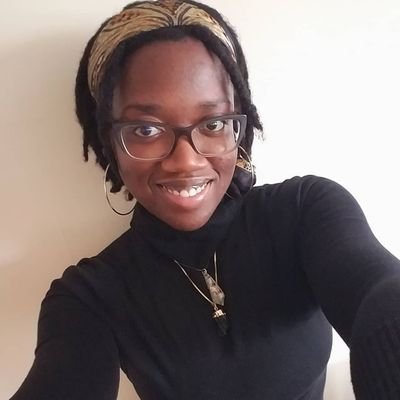
 RSS Feed
RSS Feed